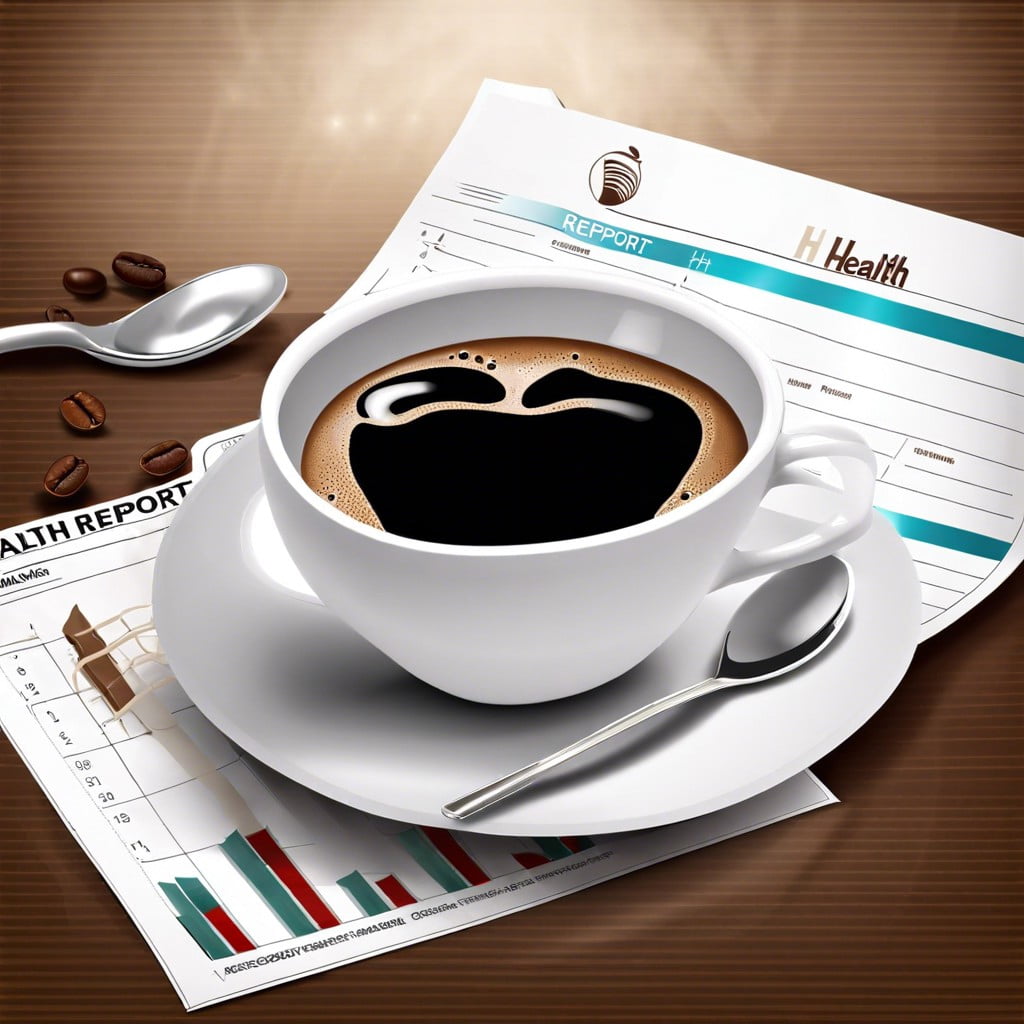Discover how to gauge your coffee consumption to stay energized without overdoing it.
Recommended Daily Caffeine Intake

Most adults can safely consume up to 400 milligrams of caffeine per day — that’s about four 8-ounce cups of brewed coffee. Keep in mind, this limit isn’t a one-size-fits-all; individual tolerance to caffeine can vary widely. Pregnant individuals should limit their intake to 200 milligrams per day, as high caffeine levels may impact fetal development.
It’s essential to consider all sources of caffeine in your daily regimen, not just coffee. This compound is also present in tea, soft drinks, energy drinks, and some over-the-counter medications. If you’re downing a latte, a soda, and a pain reliever, you might be inching closer to the upper limit than you think.
Recognizing personal signs of excessive caffeine intake is also crucial. If you experience jitters, an upset stomach, headaches, or have trouble sleeping, it might be time to reassess your caffeine consumption. Consider your own health conditions, susceptibility to anxiety, or other individual factors that contribute to personal caffeine sensitivity.
Finally, remember that moderation is key. Enjoy your coffee, but keep an eye on your overall caffeine consumption to maintain optimal health and well-being.
Health Implications of Excessive Coffee Consumption
Overindulging in coffee can have several health consequences. High caffeine levels can lead to jitteriness, disrupt sleep, and increase anxiety. It can also elevate heart rate and blood pressure, which may be a concern for those with heart conditions.
Too much caffeine impedes calcium absorption, potentially weakening bones. For pregnant individuals, high caffeine intake is linked to low birth weight and other complications. Other symptoms of excessive coffee consumption include digestive issues and a potential dependency, making it difficult to cut back.
To stay on the safe side, monitor coffee habits and pay attention to bodily responses. If adverse effects occur, consider cutting back and consulting a healthcare professional. Remember, moderation is key to enjoying coffee’s benefits without the negative side effects.
Interaction Between Caffeine and Medications
Caffeine often throws a wrench in the works when mingling with certain medications. The stimulant can amplify the effects of some drugs or blunt them, like a seesaw that’s lost its balance. For instance, combining caffeine with ephedrine can pressure your heart, turning your blood vessels into a pulsing dance floor — not the party you want.
On the flip side, birth control pills cozy up with caffeine, making it linger longer in your system and possibly inviting jitters to overstay their welcome. Antipsychotics, too, aren’t fans of coffee; caffeine can dilute their potency, rendering them less effective — a high-stakes tug-of-war for mental health management.
If antibiotics are your guest, coffee might get too chummy with them, specifically ciprofloxacin or norfloxacin. This combo can lead to a caffeine buildup, cranking up the dial on those nervous energy levels.
Thyroid medications also get finicky with coffee. Gulping down your latte too close to your thyroid pill can dampen the medication’s absorption, like a sponge that can’t soak up water while it’s already wet. It’s a delicate dance — timing is key.
So, consult your doctor before inviting caffeine to your medication mix. Knowledge is power, and a well-informed coffee routine can be both satisfying and safe.
Strategies for Reducing Coffee Intake
Gradually cutting back on coffee can be as smooth as your favorite latte with a few clever adjustments. Start by mixing regular beans with their decaffeinated siblings; your taste buds might barely notice the switcheroo. If you’re a multiple-cup-a-day aficionado, try skipping that midday mug. Replace it with a brisk walk or a glass of sparkling water for a refreshing jolt.
Keeping track of your intake is key – awareness is half the battle won. Invest in smaller cups: a demitasse can trick the brain into feeling satisfied with less. Explore the world of herbal teas. Peppermint or ginger can invigorate the senses without the caffeine spike.
Sometimes, coffee is more ritual than necessity. Craft a new ritual, one that doesn’t hinge on brewing a pot. A morning stretch session or a few pages of a captivating book might just fill the void. Embrace these strategies and watch your coffee intake dwindle like the last sips of your morning joe.
Alternatives to Coffee for Energy and Alertness
If you’re trying to cut back on caffeine, there’s a bevy of beverages and practices that can help maintain your zest throughout the day without relying on coffee. Green tea is a fantastic choice; it provides a gentler rise in energy, thanks to its combination of caffeine and L-theanine, which can reduce anxiety and enhance brain function.
Certain herbal teas, like peppermint or ginger, are caffeine-free yet invigorating, providing a warm, soothing effect while stimulating mental clarity. Beyond beverages, a cold shower in the morning can shock your system into wakefulness, promoting increased blood circulation and a natural boost of energy.
Staying hydrated is often overlooked but is critical – even mild dehydration can lead to fatigue. A glass of water, especially with a squeeze of lemon, can refresh your senses and help shake off any drowsiness.
Snack wisely; foods like bananas or nuts release energy slowly, keeping you alert without a crash. Lastly, regular exercise, especially in the morning or during slumps, releases endorphins for a natural lift that’ll outlast any coffee buzz.